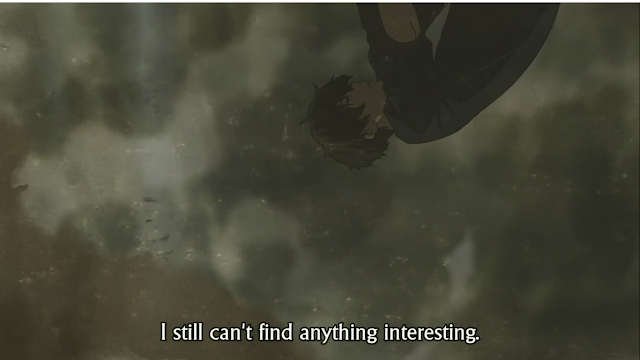Maths
I have a few friends who are Math majors, so I apologize for this in advance. Said people, please don't bother to correct me, I know I'm wrong. I'd make for a very poor Philosophy major if I didn't.
The purity of mathematics is incomparable to any other: it alone can boast of an objectivity that is almost not scientific, if by "science" we think of empiricality. Concepts and axioms in (pure) mathematics have no need of empirical epistemology, they are abstract, or, more correctly, math is the realm of the abstract, in the most abstract sense of the word, even.
This is because math does not belong to time and space. It can measure and model time and space, yes, but it has to stand outside of them for it to have the capacity to do that. That is why, in Sir Terry Pratchett's Nation, we see two strangers who do not speak the same language have difficulty in learning terms for numbers, since things always have inherent quantity (what Locke would call "primary qualities"), and so a pebble, in addition (but is it?) to being a pebble, is also one pebble. This is why math alone can best represent infinity, apart from religion, which, because it gets bogged down with words sooner or later, enters the realm of paradoxes. Paradoxes in mathematics, on the other hand, do not concern man and the divine / something and something else trying to comprehend; paradoxes in mathematics concern math and math alone. Even when you have Gödel's incompleteness theorems and Cantor's infinity hotel and Russell's set paradox, these do not speak of limits of the human mind (because they do not speak of Absolute Truth, which is always implicative of a limited mind faffling in the face of it), but instead speak of mathematical systems in general (and a human mind shaking itself in sheer awe).
There is something disturbingly counterintuitive, and because of this and despite this, also dangerously attractive, about things that stand outside of what allows for making sense out of fundamentally anything. Math does not properly belong to the world, because we experience the world in moments. Regardless of im selben Augenblick, regardless of "in the same moment," there is a duration to an eye blink, and we experience that duration. If we didn't, and if that same moment is truly the same, then it cannot have a duration, then that duration would not exist at all. Math measures that duration, like a tool, but is not in that duration itself. Math is not a tool in the same way that a ruler is - for a ruler measures length, but also itself has length. Fundamentally speaking, math has no dimensions - that is why it can speak of dimensions.
Yes, we remember moments, thus making us hold on to intangibles and draw a silver line across those moments to make them of one thing and one thing alone, but that memory has duration, too. Thus, anything that we are (ontologically speaking - eat, breathe, remember, anything whatever), is always in bits. As I said, a mole here, a laughter there, a face here, a touch there. Always already, inevitably, necessarily, in moments. These moments constitute a person. A lifetime. A lifetime with a person. But only as moments, drawn together with the net that is the human mind, which does nothing but string together nothing but moments. Which, by definition, do not last - or only last because of memory, which is also momentary and fleeting.
That is perhaps why we hate mathematics, for the same reason that we love it. (For what are those two feelings, if not the same?) Because in it we see infinity as it is, and hope that this infinity that we see in math is also identical in kind to the infinity that a lifetime with a person makes us experience. It is not. That is why we say "I'm so happy I could die," i.e., as though somehow dying and falling out of ontology creates infinity. And yet we know that it does not. That is why we really do not wish to die in moments of happiness: we just wish there were more, and more, and more, ad infinitum.
Which we know we cannot have. Life does not work that way. Life is utterly momentary. (And because it is, we complain about it being fleeting, but we also complain about the brevity of moments. And that is the way it can only be.) Life is utterly momentary.
And that is why we also say that math is cold, like snow, like the logic of the Devil, like objectivity. Because at the bottom of the human heart is a longing for warmth.
And warmth, too, is momentary. It cannot last. But that doesn't matter: we have math. Math reminds us of infinity, which is the most dangerous hope of all.
Image credit: http://imgs.xkcd.com/comics/purity.png



Comments
Post a Comment